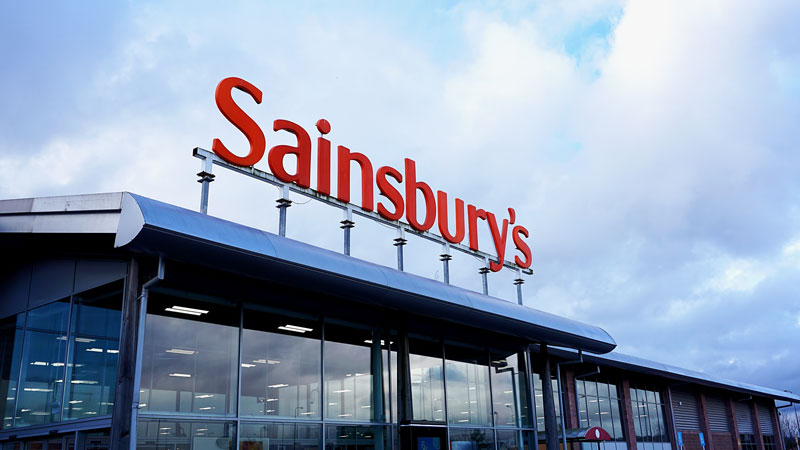Sainsbury's to Invest £1bn to Become Carbon Neutral by 2040

The supermarket giant is aiming to become a carbon-neutral business ten years ahead of the government’s goal for a net-zero economy.
Sainsbury's has pledged to invest £1bn over the next 20 years on a programme that includes cutting plastic packaging, food waste, carbon emissions, and water usage. The programme will also involve promoting sustainable eating, increasing recycling, and making sure that its operations are net positive for biodiversity.
The retailer plans to halve its plastic packaging use by 2025. They also plan to make their fridges more energy efficient, and increase their use of low-carbon and alternative fuels in its vehicles.
Sainsbury’s are also trialling a scheme in five of its stores where customers can receive a 5p coupon for each plastic bottle they recycle.
Mike Coupe, chief executive of Sainsbury’s, said the company was making the changes so that they can “transform the way we do business and put environmental impact at the forefront of every decision we make”.
Coupe also highlighted the fact that “despite the footprint of our business increasing by over 40%” the company had managed to cut its carbon emissions by 35% over the past 15 years.
“We invested £260m in over 3,000 initiatives over the last decade, including the start of our LED lighting programme and refrigeration,” said Coupe.
Friends of the Earth welcomed the proposed changes from the supermarket. Mike Childs, head of policy, said: “Supermarkets have a huge influence on our personal carbon footprints, so the more they can do to embrace and encourage greener lifestyles, the better for us all”.
“Encouraging and supporting the switch to a more plant-based diet is particularly important – eating less, but better quality, meat and dairy would be healthier for people and the planet. The influence supermarket chains have over suppliers is also huge – they must use that to encourage better environmental standards while still ensuring a fair deal for farmers”, added Childs.
Other supermarkets have also outlined sustainability goals, however Sainsbury’s has the most ambitious targets. Tesco recently announced that it would remove shrink wrapping on tinned food multipacks in order to reduce plastic packaging use. The retailer hopes to achieve carbon neutrality by 2050, ten years later than Sainsbury’s goal.
Aldi announced early last year that it would start buying carbon credits to offset the emissions produced by its 11 UK distribution centres and 870 stores. The German discount chain also said it had switched to renewable energy, reduced fuel consumption on its distribution network, and had upgraded its freezers and fridges in order to reduce carbon emissions.
Read on our blog

With the government poised to implement tough new measures to...

Budget broadband provider TalkTalk has been notifying customers via email...

A year-long investigation by charity Citizens Advice has revealed a...

Education Secretary Nadhim Zahawi has announced a new commitment to...
